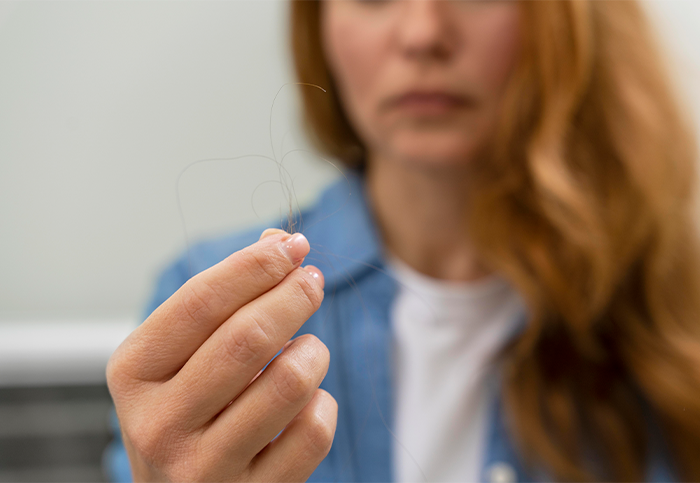Is Diabetes Reversible? Know How to Manage It
Is diabetes reversible? Does it have a certain cure? Can I get rid of this disease? Many people ask these types of questions. Know about the proper management of diabetes by reading this blog till the end.

What Is Diabetes?
Diabetes is abnormal blood sugar levels due to reduced insulin synthesis or insulin insensitivity. Diabetes is not a single disease but a group of metabolic disorders that affect the body's normal blood sugar levels.
Types of Diabetes
There are two major types of diabetes, insulin-dependent and insulin-independent diabetes. Insulin-dependent is also known as type-1 diabetes, while insulin-independent is also known as type-2 diabetes.
Type-1 diabetes appears due to an autoimmune reaction in which the immune system mistakenly destroys its insulin-synthesizing cells, i.e., beta-cells. Consequently, insulin production stops, which results in high blood sugar levels in the body. It usually occurs in childhood. However, its onset can also be observed in adults and older age.
Type-2 diabetes is a chronic condition in which body cells lose insulin sensitivity. In this condition, insulin produces in the body but doesn’t get sensed by the body cells. It is most prevalent in adults; however, younger people are equally suffering from this disease nowadays.
What Causes Diabetes?
The exact cause of diabetes is not known yet. However, certain factors can trigger this disease. Some of them are listed below:
- Obesity
- Unhealthy lifestyle
- Lack of physical activity
- Viral infections
- Hormonal issues
- Gene mutation
- Family history
Is Diabetes Reversible?
This is the million-dollar question that many people ask. Diabetes is a group of metabolic disorders and has multiple triggers. Different people might get affected by different triggers. This is the reason that diabetes hasn’t a specific cure. But if we sustain a healthy weight, type 2 diabetes can be reversed in its early stages because a lower body fat level enhances the body's insulin sensitivity, thereby increasing body cells’ ability to absorb glucose.
Diabetes is a lifestyle-related disorder, and although there is no proper treatment for diabetes, it is certainly manageable. It can be managed in multiple ways. Following those, you can extend your healthy years of life.
How To Manage Diabetes?
There are different ways to manage high blood sugar levels and maintain their normal range in the body. Some include exercise, low GI foods, garlic, bitter melon extract, and food supplements to support normal blood sugar levels. Here are five healthy ways to manage diabetes and its symptoms.
1. Exercise
Working out is the best remedy to manage healthy blood sugar levels. A low-impact activity that many people enjoy is walking. Increasing your step count can lower your cholesterol, blood pressure, and glucose levels. The American Diabetes Association (ADA) recommends 30 minutes of brisk walking daily or about 100 steps per minute.

By including exercises like stair climbing, you can also increase the intensity of your walks. However, if you weren't active before being diagnosed with diabetes, start slowly and pick up the pace over time.
Furthermore, running and cycling are also beneficial in mangling blood sugar levels. These faster-paced activities are associated with a lowered risk of high blood pressure, cholesterol, and blood sugar levels.
2. Low Glycemic Index Foods
If you have diabetes, you should take low-caloric and low-glycemic index foods, so your blood sugar levels do not rise abruptly.

Whole grain, multigrain, rye, oats, bran flakes, apples, strawberries, apricots, peaches, plums, pears, kiwi, carrots, broccoli, sweet potatoes, orange, corn, yams, winter squash, lentils, and chickpeas are the low glycemic index foods that you can consume within the recommended serving seize.
In addition, fish and fish oil, olive oil, nuts & seeds, herbs, and spices are those foods that don’t contain carbohydrates. You should also add them to your diet as per recommended serving size.
3. Garlic
Garlic extract contains multiple phytochemicals, including Allicin. It has been traditionally used for numerous health benefits for the human body. One of those is to keep blood sugar levels within the normal range. People can benefit from its amazing uses by including its raw form in their daily diet or good-quality garlic extract supplements.

But first, you must know how garlic helps manage blood sugar levels. Sugar levels in the blood rise when someone eats a large number of sugary foods at once.
The free glucose binds with the hemoglobin, forming glycated hemoglobin (HbA1c), an indicator of high blood sugar levels. Garlic reduces free glucose levels in the blood, thus lowering the chances of Hb1Ac production.
4. Bitter Melon Extract
Bitter Melon Extract contains numerous substances directly or indirectly involved in sugar metabolism. As we all know, our body requires insulin to proceed with sugar uptake from blood to the cells. Bitter Melon Extract contains components that act like Insulin and, therefore, are beneficial in blood sugar management.

Charantin, Vicine, and Polypeptide-p are three of the major bioactive compounds present in Bitter Melon Extract. These compounds support normal sugar metabolism, working solely or through a network. Charantin and Vicine are the two components that combinedly possess blood sugar-lowering properties.
Polypeptide-p is an active compound that acts like Insulin in the body and thus helps manage blood sugar levels. Although people may find the consumption of Bitter Melon Extract a bit problematic due to its taste.
It is encouraged to use the supplemental form of this extract to get the same efficacy but without the taste issues.
5. Food Supplements for Diabetes
Nutrifactor’s Glucofactor, Sensolin, and Glyzon Plus are specially formulated supplements for diabetic patients to help regulate their blood sugar levels.

These contain potent herbal extracts such as garlic, watermelon extract, and other vital ingredients that help improve insulin sensitivity in the body, thereby reducing high blood sugar levels.
References:
• https://www.healthline.com/nutrition/low-glycemic-diet
• https://diabetesjournals.org/care/article/39/11/2080/37234/Type-2-Diabetes-The-Pathologic-Basis-of-Reversible
• https://www.webmd.com/diabetes/can-you-reverse-type-2-diabetes
• https://www.ncbi.nlm.nih.gov/pmc/articles/PMC4434080/



